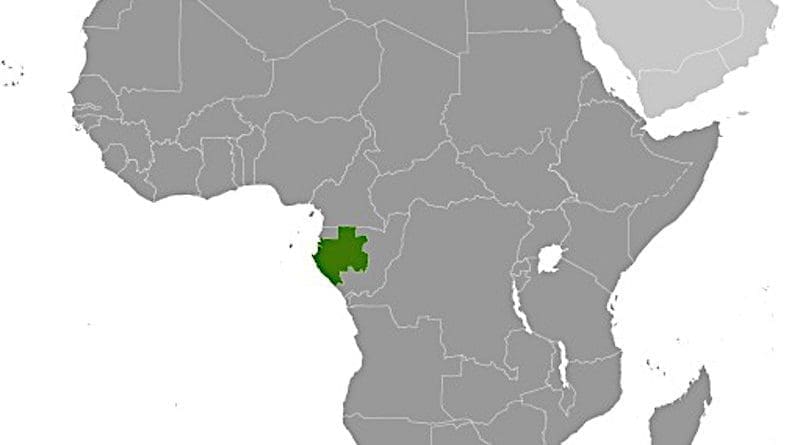Gabon Energy Profile: Crude Oil Provides Significant Amount Of Its Revenue – Analysis
By EIA
Gabon is a mature oil producer in West Africa, and its government derives a significant amount of its revenue from crude oil production. Revenue from petroleum and other liquids represents about 45% of gross domestic product (GDP), and petroleum and other liquids exports accounted for nearly 74% of total export revenue in 2019.
In 2019, oil-based GDP growth is estimated to be 7.9%, and the overall GDP growth is estimated to be 3.4%, according to the International Monetary Fund.
Gabon officially rejoined the Organization of the Petroleum Exporting Countries (OPEC) in July 2016. Gabon was previously a member of OPEC from 1975 to 1995, but it left the organization because of high annual fees.
In 2011, the government created a national oil company (NOC), the Gabon Oil Company, to increase the government’s involvement in oil production by taking equity stakes in future awards.
Petroleum and other liquids
Gabon is among the top five oil producers in sub-Saharan Africa and has 2 billion barrels of proved crude oil reserves, including lease condensate reserves, according to the Oil & Gas Journal. The major international oil companies (IOCs) operating in Gabon are Total, Assala Energy, Perenco, Addax Petroleum, and Vaalco Energy. The IOCs have operations primarily in Gabon’s offshore fields.
Gabon produced about 201,000 barrels per day (b/d) of petroleum and other liquids in 2019. Low oil prices and mature oil fields have caused Gabon’s oil output to decline. Total oil production has decreased by more than one-third since its peak of 370,000 b/d in 1997.
China’s share of Gabon’s total crude oil exports increased significantly from 15% in 2015 to 74% in 2019. Other major export destinations include Singapore, South Korea, Australia, Malaysia, and Italy.
In mid-2019, Gabon enacted the 2019 Hydrocarbon Law to reinvigorate its oil market and support its 12th bidding round for the allocation of 23 deep-water and 12 shallow water blocks. The new law decreases by half the government’s participation, to 10%, during development and exploitation. The law caps the increase of cost recovery at 70% and 75% for conventional areas for oil and deep and ultra-deep areas for oil, respectively. The law also establishes an option to renegotiate if additional discoveries are made and extends the exclusive authorization timeframe.
Following the Ivela-1 and Boudji-1 discoveries and the ratification of the 2019 Hydrocarbon Law, Petronas signed an exploration and production contract for offshore blocks F12 and F13. The blocks are expected to yield 200,000 b/d. Gabon plans to auction 35 blocks in the current offshore licensing round.
Gabon has a single refinery, the Sogara Refinery, which is owned by Société Gabonaise de Raffinage (SOGARA) and is located at Port Gentil. The aging refinery, which routinely operates below capacity because of maintenance issues, has a crude oil distillation capacity of 24,000 b/d.
Gabon and South Korean company Samsung signed a memorandum of understanding to construct a new 50,000 b/d refinery in Port Gentil to replace Sogara in 2012. They later abandoned these plans.
Natural gas
Natural gas production in Gabon was about 13 billion cubic feet (Bcf) in 2018. According to the Oil & Gas Journal, the country has approximately 900 Bcf of proved natural gas reserves, most of which are associated with its crude oil fields.
Gabon consumes all of the natural gas produced domestically and uses natural gas for reinjection into oil wells to enhance oil recovery. Gabon aims to use natural gas for two planned fertilizer plants and future petrochemical projects.
In July 2019, Perenco procured the license for the Olowi field, which is estimated to hold 0.85 Bcf of potential natural gas reserves. Royal Dutch Shell also discovered natural gas in the Leopard-1 well in 2014.
Electricity
Total installed capacity in Gabon was 750 megawatts (MW) in 2018. Thermal power from fossil fuels accounted for 56%, or 418 MW, of total capacity. Hydropower represented 44% of total capacity. Biomass and solar accounted for the remaining 2.2 MW.
Total electricity generation in Gabon was 2.2 billion kilowatthours (kWh) in 2018. Generation from fossil fuels accounted for 58%. In 2018, hydropower generation decreased slightly to 892 million kWh from 920 million kWh in 2017.
According to the latest 2018 estimates from the World Bank, 93% of Gabon’s population has access to electricity. Gabon’s urban areas consume most of the country’s generated power and have an electrification rate of 97%, but the electrification rate in rural areas is substantially lower, at 63%. The government of Gabon plans to provide electricity for 85% of rural regions by 2025.
Gabon’s growing and urbanizing population and its industrial development are straining the country’s power generation capacity. To meet the country’s electricity demand, Gabon continues to invest in new hydroelectric power plants. In early 2019, the African Development Bank (AfDB) and the Gabon Power Company (GPC)-Eranove Consortium agreed to finance construction of the 73-MW Ngoulmendjim hydropower plant by Asokh Energie and 15-MW Dibwangui hydropower plant by Louetsi Hydro. The Dibwangui plant will electrify the rural communities in southwest Gabon, which previously did not have electricity.
In October 2019, French fund manager Meridiam signed a 33-year concession contract with the government of Gabon to construct a 34 MW hydropower plant on the Mbei River, 100 kilometers from Libreville, the capital of Gabon. The Kinguele Aval Hydropower Project will be financed in part by International Finance Corporation (IFC), the African Development Bank (AfDB), the Development Bank of Southern Africa (DBSA), and the Islamic Development Bank (IDB). The Gabonese Fund for Strategic Investments (FGIS) and Meridiam will fund 25% of the project. It plans to provide 13% of Libreville’s electricity needs and is expected to replace some thermal capacity. Construction was scheduled for the second quarter of 2020, but it has been delayed following the outbreak of the novel coronavirus (COVID-19). Meridiam expects the project to be completed by 2023.

